EY refers to the global organization, and may refer to one or more, of the member firms of Ernst & Young Global Limited, each of which is a separate legal entity. Ernst & Young Global Limited, a UK company limited by guarantee, does not provide services to clients.

Greece's attractiveness as an investment destination remains resilient, despite the uncertainty of the international environment.
This year's, fourth edition of EY’s Attractiveness Survey Greece 2022 , confirms that the country’s attractiveness as an investment destination remains resilient, in spite of the increased uncertainty and pessimism created by the war in Ukraine and the dramatic increase in energy prices. It also highlights the growing competition aimed at attracting investments, at the European and international level, and the need to intensify efforts to further improve the country's image.
The qualitative mix of investment projects improves
Based on data from European Investment Monitor (EIM), an extensive database processed by EY that tracks investments in greenfield projects that create new facilities and new jobs, Greece attracted 30 FDI projects in 2021, fewer than last year, but, still, the country's second-best performance since 2000.
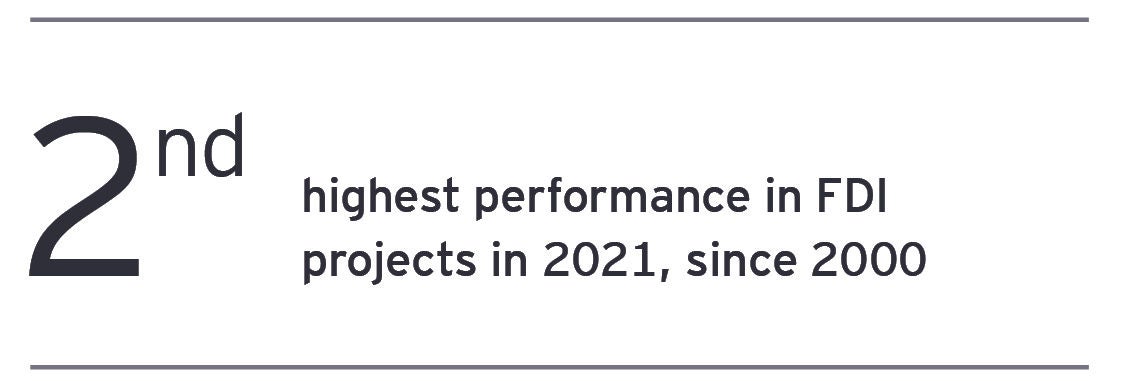
Cumulatively, the investment projects of the last two years represent 24% of total foreign direct investments over the last 22 years.
There is also a clear shift towards investments with higher added value, and an emphasis on sectors of the economy where Greece has a significant comparative advantage, such as agri-food, transport and logistics and software and IT services, which absorbed a total of 57% of investments. Based on the type of activity, 30% of FDI in Greece concerns investments in corporate headquarters, followed by manufacturing (20%) and logistics activities (17%). This improvement in the qualitative composition of investments is, perhaps, as important as the increase in the absolute number of projects, as it contributes to the transformation of the economy and its reorientation to new dynamic activities.
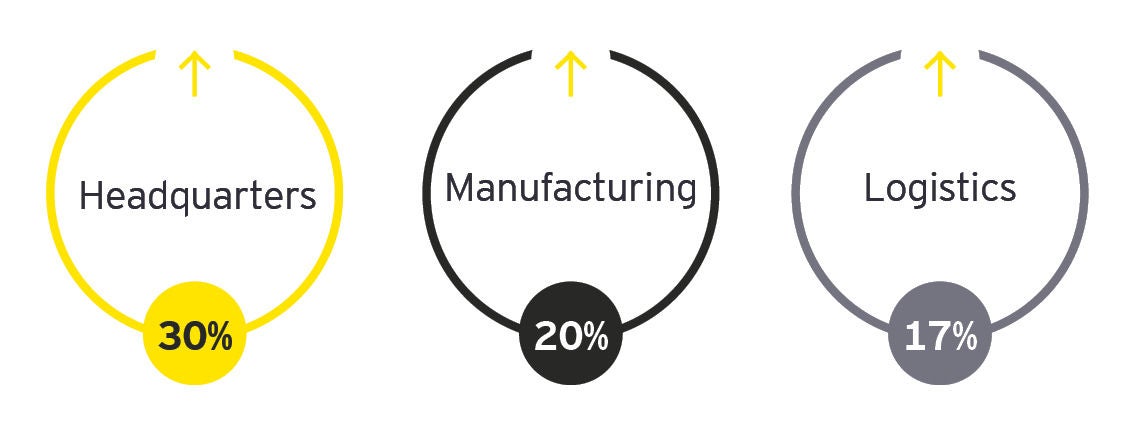
High level of optimism regarding the evolution of the country's attractiveness and increased investment plans
EY's Attractiveness Survey Greece, based on a sample of 250 companies, confirms the resilience of the country's attractiveness in a particularly challenging environment. It is worth noting that the survey for Greece was conducted between March 15 and April 15, by which time the economic consequences of the war in Ukraine and the extensive sanctions imposed on Russia were widely understood, a fact reflected in the findings. Therefore, comparisons with the performance of other countries, where surveys had been completed earlier, probably reflect badly on Greece.
The majority of respondents (58%) state, once again, that the attractiveness of the country as an investment destination has improved over the last year, while three out of four investors believe that it will improve further in the next three years, which is the highest percentage among European countries, and well above the figure for the whole of Europe (64%).
Investors believe that the country’s attractiveness will improve over the next three years
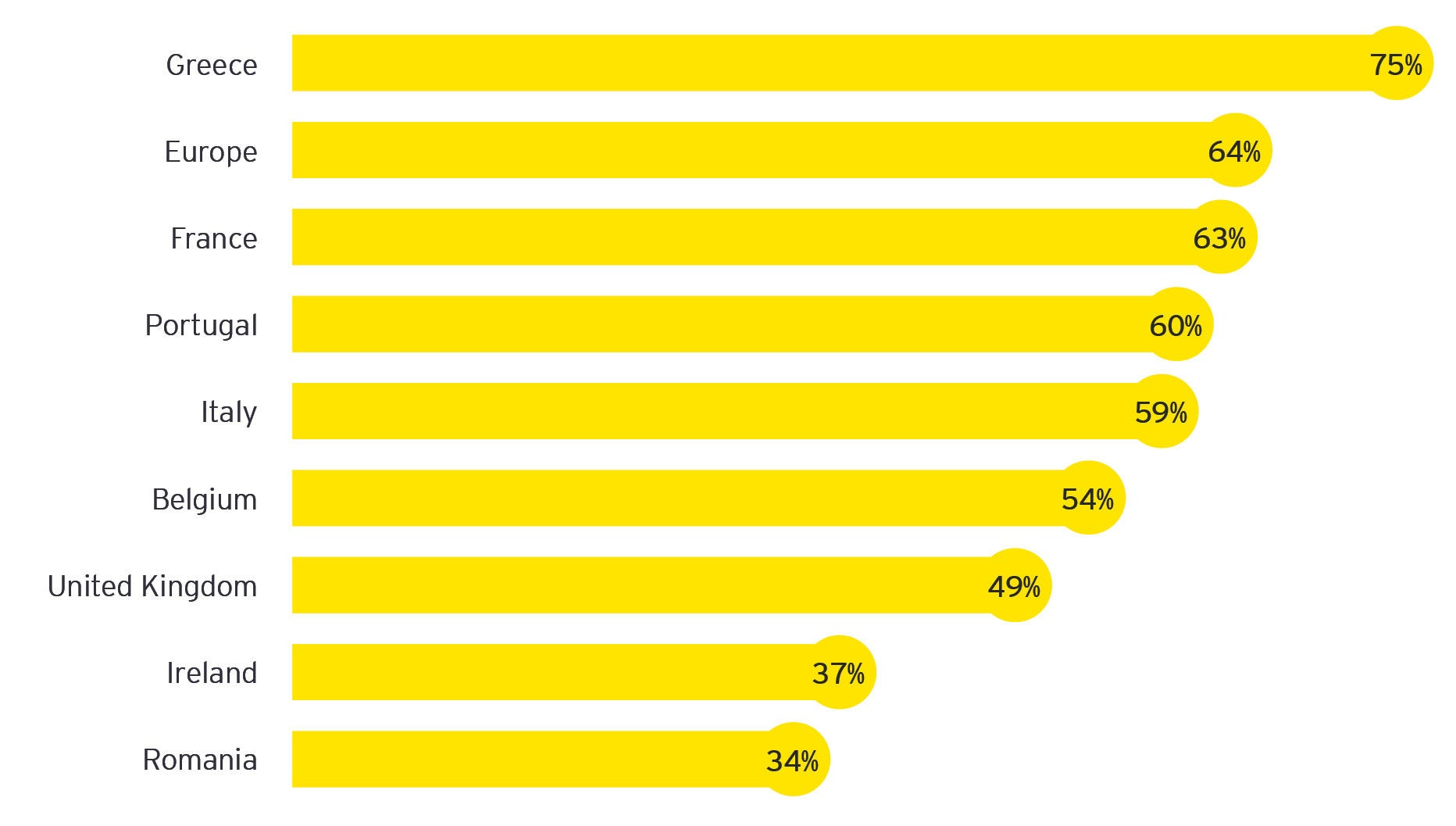
Meanwhile, the percentage of companies planning to invest or expand their activities in Greece reached 37% from 34% last year and 28% in 2020.
However, the consequences of the war on the psychology of investors are evident: While the majority of companies (54%) report that they have made no changes in their investment plans, and 13% say that they are proceeding with a small increase in planned investments, one in three companies (32%) reports that they have delayed their immediate investment plans until 2023, or later.
Specific aspects of the country’s attractiveness
As in previous years, participants were asked to evaluate specific components of the country's attractiveness, highlighting comparative strengths and weaknesses. Quality of life (75%), the transport and logistics infrastructure (73%), the telecommunications and digital infrastructure (72%), Greece's domestic market (72%), and skills and availability of the workforce (70%), stand out as key elements of the country's attractiveness.

In contrast, the flexibility of labor legislation, the education system, the tax environment and Greece’s geopolitical location are perceived as inhibiting factors. The latest finding is a clear reminder of the negative impact of the deterioration of relations with Turkey on the investment climate.
High marks for the country's attractiveness policies
The survey highlights a significant improvement in the views of the investment community with regard to different aspects of Greece’s performance in attracting investment, which seems to confirm that companies attribute the improved image of Greece to the implementation of specific policies, rather than the end of the period of uncertainty caused by the financial crisis. Specifically, investors rate positively the country’s policies for attracting companies (81%), for attracting talent (78%), for attracting innovative activities (75%), for attracting capital (65%), for attracting decision centers / headquarters (58%) and for establishing global centers for competitiveness /world-class clusters (55%). It is worth noting that, only two years ago, none of these secured a positive rating from more than 50% of respondents.
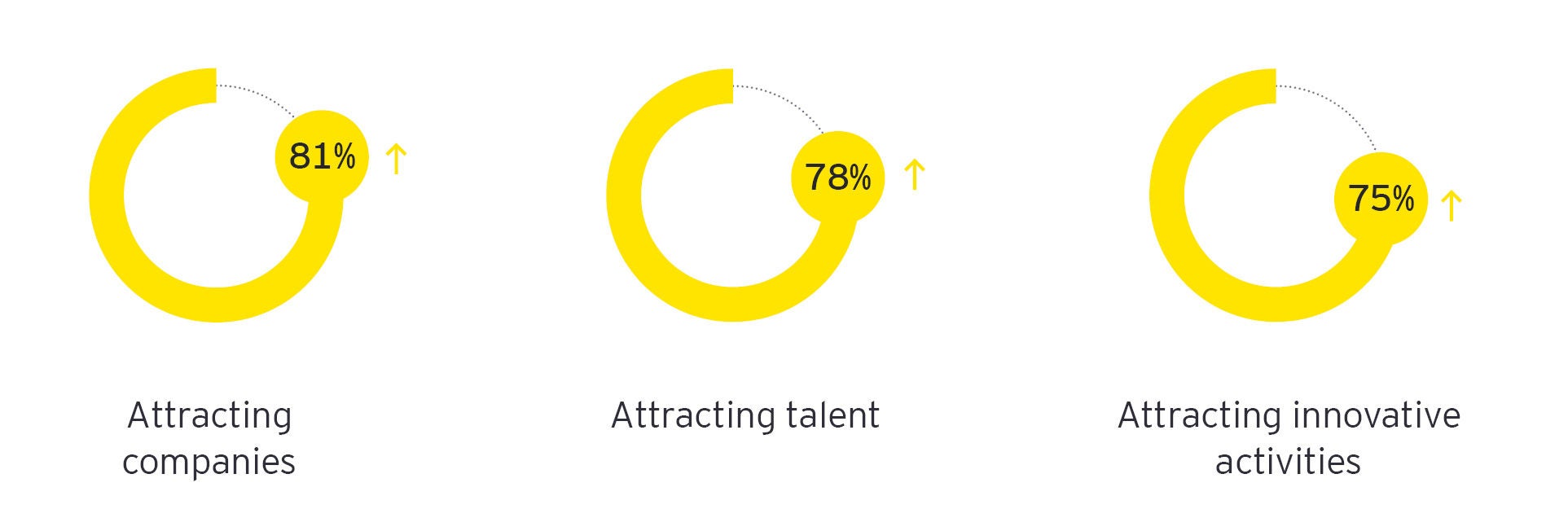
Focus on sustainability, technology and talent
Three central issues are shaping business investment decisions in Europe today: the shift towards sustainability, the ever-increasing emphasis on technology and the search for skilled talent. Countries performance in these criteria will largely determine their success in attracting investment and, by extension, the growth rate in the coming decades. In this context, it is critically important that Greece has made these issues a top priority in recent years.
Respondents were asked to assess the country's performance based on a number of specific criteria linked to these three issues. In all individual areas examined, the majority of respondents consider that Greece is performing as well as, or better than, the European average. However, in several areas, there are also significant minorities of respondents who consider that the country's performance lags behind its European counterparts, highlighting the fierce competition and systematic efforts made today by all European countries to attract investment.
Areas of focus
Investors also gave their views on the areas where the country should focus its efforts to maintain its competitive position. Developing education and skills (40%), supporting for high-tech industries and innovation (37%), reducing taxation (33%) and supporting small and medium-sized enterprises (27%) topped the list.
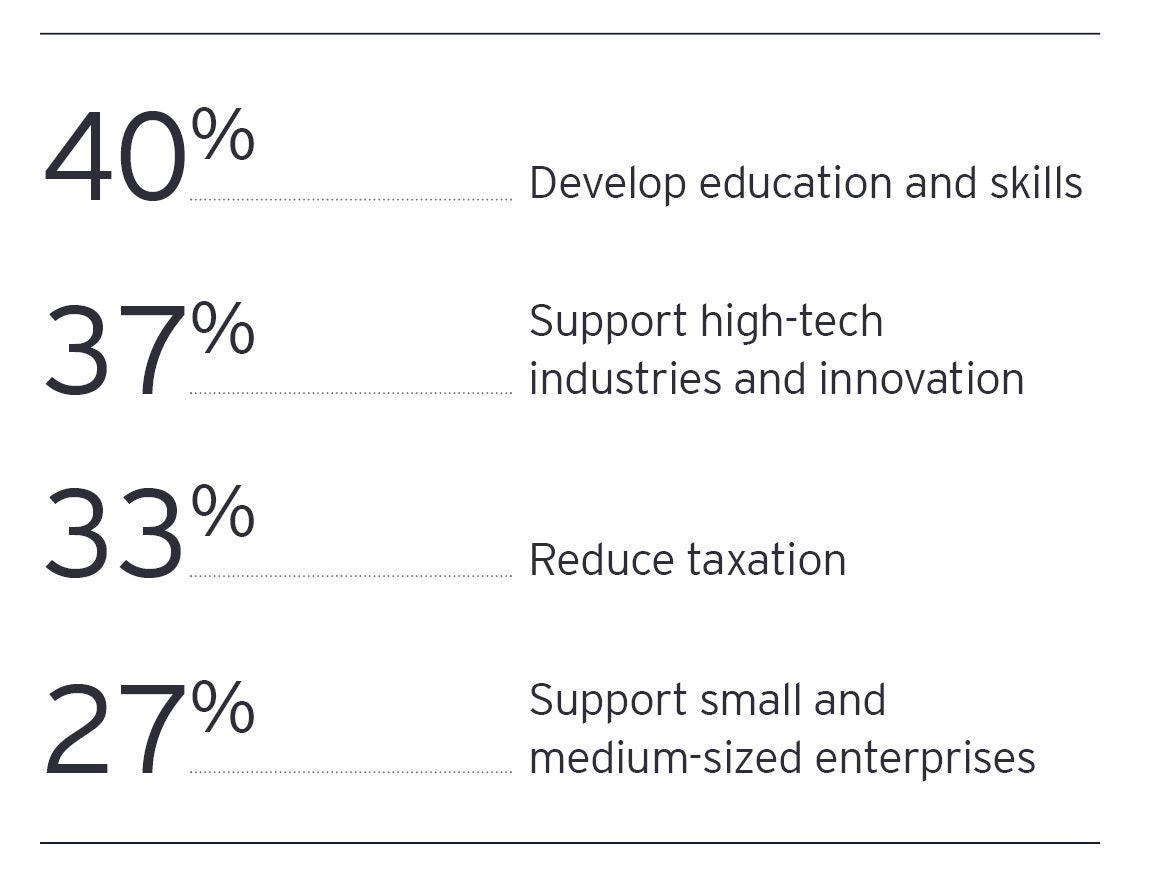
Finally, respondents were asked if they would be more willing to invest or proceed to further investments in the country, if Greece addresses the above issues. Nine out of ten companies (90%), including 83% of companies that are not currently established in Greece, answered positively, compared to 86% and 62% respectively a year ago.
Based on the findings of the survey and its experience in the field, EY Greece presented a set of proposals focusing on 10 areas, addressed to the State, public administration, as well as the Greek business community, in order to strengthen the attractiveness of the country.
Our main conclusion can be summarized as follows: In a year of increasing uncertainty, the attractiveness of our country as an investment destination remains strong thanks to the significant steps taken in recent years. This is an achievement that must be safeguarded, along with the broad consensus reached in the last few years regarding the imperative need to attract foreign investment. This will require the mobilization of the country’s political and entrepreneurial leadership, the civil service, as well as the whole of Greek society. We need to remember that in the current extremely competitive European and global environment, all countries are intensifying their efforts and moving at a rapid pace to strengthen their attractiveness. In this context, Greece must measure its progress in relations to its competitors rather than its own past performance.
Download the EY Attractiveness Survey Greece 2022 Executive Summary, in English
Download the EY Attractiveness Survey Greece 2022, in Greek
Summary
The fourth edition of EY’s Attractiveness Survey Greece 2022, confirms the resilience of the country's attractiveness as an investment destination, in an extremely challenging environment. It also highlights the areas where Greece should focus, at a time when investment decisions worldwide are decisively influenced by trends related to sustainability, technology and talent.



